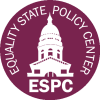In August, I penned the following op-ed to the Wyoming Tribune Eagle and WyoFile detailing the contradictions in Wyoming election statute. The Equality State Policy Center has been at the center of electoral reform since its conception thirty years ago when we filed a lawsuit against the outcome of the redistricting process because it was not representative of Wyoming citizens.
ESPC knows that our current election system is not fair to voters– it explicitly excludes third-party and unaffiliated voters from participating in our Primary.
For thirty years, we have been dedicated to improving public access to the government and strengthening citizen voice. We believe that one of the main ways we can work to strengthen citizen voices is to work towards a primary election system in which everyone can participate.
Did you get the chance to watch the October 26th and 27th Corporations, Elections, & Political Subdivisions meeting? View the members, meeting details, and more at the Wyoming Legislature’s website.
The bill draft 24LSO-0098 v0.5 Political party affiliation declaration and changes. ultimately failed last week, but it is still worth reading through along with the Governor’s Redline.
Interested in getting more involved? Email Marissa at mcarpio@equalitystate.org
Wyoming’s Constitution is unique: it is the only state constitution that protects the right to political equality. Laws that create special classes of voters and candidates violate our state constitution as laid out in Article 1, Section 3.
Two weeks ago, the interim Joint Corporations, Elections, and Political Subdivisions Committee spent almost a full day discussing electoral reform, nearly double the time allocated on the agenda. The Equality State Policy Center paid close attention to the testimony, discussion, and background noise surrounding the most important responsibility of a Wyoming citizen: the right to vote.
During the August 25th meeting, the committee discussed legislation that would create a 30-day residency requirement for voting, increase restrictions on monetary contributions to elections and campaign contributions, raise residency requirements for state legislature candidates, and create additional limits on crossover voting. What the committee failed to discuss was equal access to political processes, finding ways to increase voter participation, and ensuring that our right to political equality is protected.
When House Bill 103 – political party affiliation declaration and changes, passed into law earlier this year, the Equality State Policy Center voiced several concerns about the bill coined as the “crossover bill.” Before this bill, Wyoming required voters to register with a party affiliation to vote in primary elections. However, voters could change their affiliation leading up to the primary election and even on the day of the primary election, thus making it a semi-closed election.
This new law, which will impact the upcoming 2024 primary election, requires voters to affiliate with a party before candidates have even filed to run. It prohibits changes to one’s registration between that time until after the primary election The ‘blackout period’ for amending party affiliation in 2024 is between May 16th and August 20th.
ESPC believes that this is not the change that Wyoming needs to achieve fair elections and transparent government.
This law forces Wyoming voters to choose party over candidate. At its core, Wyoming is a small town with long roads; we are likely to know the candidates on the ballot personally and want to vote for our friends and neighbors. Even if their party affiliation differs from our own.
This law does not create a more equal political process – especially not for those registered as unaffiliated voters in Wyoming. Candidates and voters registered in minor parties or who are unaffiliated are still excluded from the state’s primary elections. The exclusion of unaffiliated and Independent voters “raises concerns about fairness and equal representation in [the] use of tax dollars,” according to Gail Symons of Civics307.
When an entire class of Wyoming taxpayers cannot participate in the primary election their tax dollars pay for, it becomes a private election that uses public funds.
Finally, the law also prevents currently registered voters (or those who have been registered in the last year) from canceling their registration during the blackout period. That becomes problematic when voters relocate from one state to another; they may end up registered in two states, as the period between May and September is the busiest season for moving.
The amended bill draft the committee considered on Thursday seemed to solve this last problem. However, Secretary of State Chuck Gray proposed further amendments to “get rid of the cancellation loophole in 22-3-115 and … solidify the original intent of the bill.”
Chairman of the committee, Senator Cale Case-R from Lander, questioned Symons about her thoughts on the implementation of this amendment, inquiring about the possible impact on one’s First Amendment rights.
Symons responded, “You’re going to tell me that because sometime in the past I registered that I can’t cancel my registration? I absolutely believe that it is… infringing upon the First Amendment.”
Even with those concerns, the committee approved Secretary Gray’s proposed amendment. As the Equality State, we must work to protect the right to political equality granted to us in Art. 1 Sec. 3 of Wyoming’s State Constitution. ESPC will take the opportunity to draw attention to the fact that this furthers inequity for unaffiliated and Independent voters and those who choose to cancel their registration for any reason.

